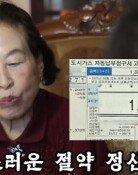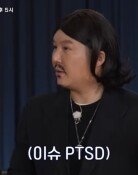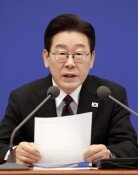Is TKR-TSR Connection Possible?
The report that President Roh Moo-hyun officially asked Russian President Vladimir Putin for cooperation in a project linking the Trans-Korea Railway (TKR) to the Trans-Siberian Railway (TSR) is placing the Three-Party Big Deal scenario at a center of debate again.
The point of this scenario is that three countries, South Korea, North Korea, and Russia, may compromise to mobilize the financial resources necessary to modernize North Koreas railways by clearing the financial obligations among these countries.
It will cost 2.45 billion won to 2.9 billion won to make North Koreas trains that currently run at under 20 kmph on average run up to over 40 kmph. Once the trial run of the Gyeongin and Donghae railways is completed, the expansion of the lines to the North by connecting the TSR and TKR must be spotlighted again.
The ruling Uri Partys members Lee Hwa-yeong and Kim Hyeong-joo, who are known as being pro-Roh Moo-hyun, are scheduled to attend a four-day international seminar organized by the East Asia Foundation held in Vladivostok of Russia June 1 and have a talk about measures for cooperation with Russia in the sectors of agricultures, energy, and railway construction linking the South, the North, and Russia. In addition, former Prime Minister Han Myeong-sook, supported by President Roh and his supporting group, may go with them. Thus, we cant rule out the possibility that the Three-Party Big Deal scenario that has been discussed as a idea may take place as one of the last major feats of the Roh administration.
Where does the Three-Party Big Deal scenario come from? Since the 1960s, North Korea has borrowed 3.8 billion rubles or an estimated 8 billion dollars (according to the Russian government).
Meanwhile, South Korea lent 1.47 billion dollars to the Soviet Union in 1991 when it opened diplomatic relations with the Soviet Union. Of that, 1 billion dollars was a bank loan and 470 million dollars consisted of household goods made by Korean companies such as Samsung and LG. After the collapse of the Soviet Union, the repayment process became protracted.
This scenario was first spotlighted last December when Russias Deputy Finance Minister Sergei Strochak and his North Korean counterpart Kim Yong Gil had a talk in which the Russian government said, We will write off 80 percent of the debt that North Korea owed Russia (an estimated 3.04 billion rubles). The North informally agreed to the suggestion.
Regarding this, experts and analysts argue that the Russian governments remission for North Korea might have something to do with its financial obligations to South Korea. In fact, Russia repaid 460 million dollars in the form of defense products, and the Korean government wrote off overdue interest of 660 million dollars. But Russia still owes 1.33 billion dollars to South Korea.
A specialist on Russia, who does not want to reveal his name, said, A probable scenario of the Three-Party Big Deal is to make Russia pay back its debts with rails and trains and give them to North Korea for the modernization of its railroads. The government thus aims to invest in North Koreas infrastructure while writing off Russias debts.
Russia is known to suggest a plan of rails by Russia, funds by Korea, and construction by North Korea.
However, the South Korean government rejects this as unrealistic. A government official said concerning the Three-Party Big Deal theory, Russia has not made such a suggestion in negotiations over how to pay back debts, and the Korean government has not conceived of such a plan, either. He also denied the possibility of aiding North Korea by providing construction materials, saying, It was decided that (Russia) will pay off its 1.33 billion dollar debt with cash until 2025.
Goal Is Summit Talk?
A three-party summit seems necessary for the three-party big deal since it needs a political decision by heads of governments. President Rohs official invitation of Russian President Putin through former prime minister Han Myeong-sook is interpreted as a step toward a three-party summit.
As a matter of fact, a three-party summit plan led by Russia was underway when the current administration was launched. Former president Kim Dae-jung said in a radio program in February, A South-North Korea summit was cancelled at the final stage at the beginning of the participatory government. He also added, When I was in office, a three-party summit in Irkutsk (south of Lake Baikal) was suggested by Russia.
Lawmakers Visits to Russia Planned
Uri Party lawmakers are planning to visit Russia, starting with lawmaker Lee Hwa-yeong at the beginning of next month. A source from Lees side said, We are currently making a list of participants. Former prime minister Han will probably join us unless there is a schedule conflict.
After a seminar in Vladivostok, Lee will visit Moscow to discuss three-way economic cooperation and the political situation of Northeast Asia as a representative of the Uri Partys Northeast Asian Peace Committee. As former prime minister Lee Hae-chan is also expected to join the visit, some guess that political issues will be discussed during the visit.
taewon_ha@donga.com sys1201@donga.com







